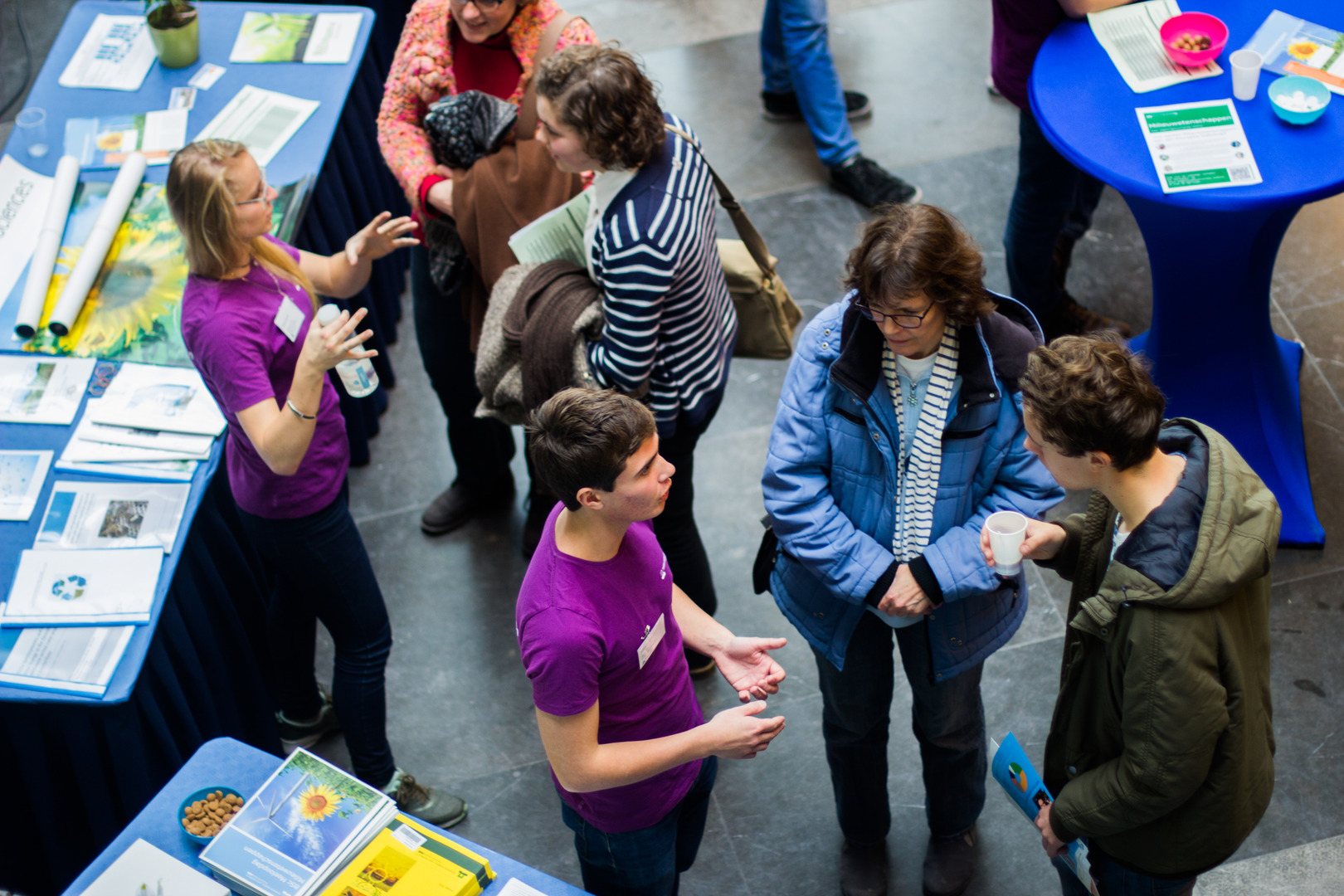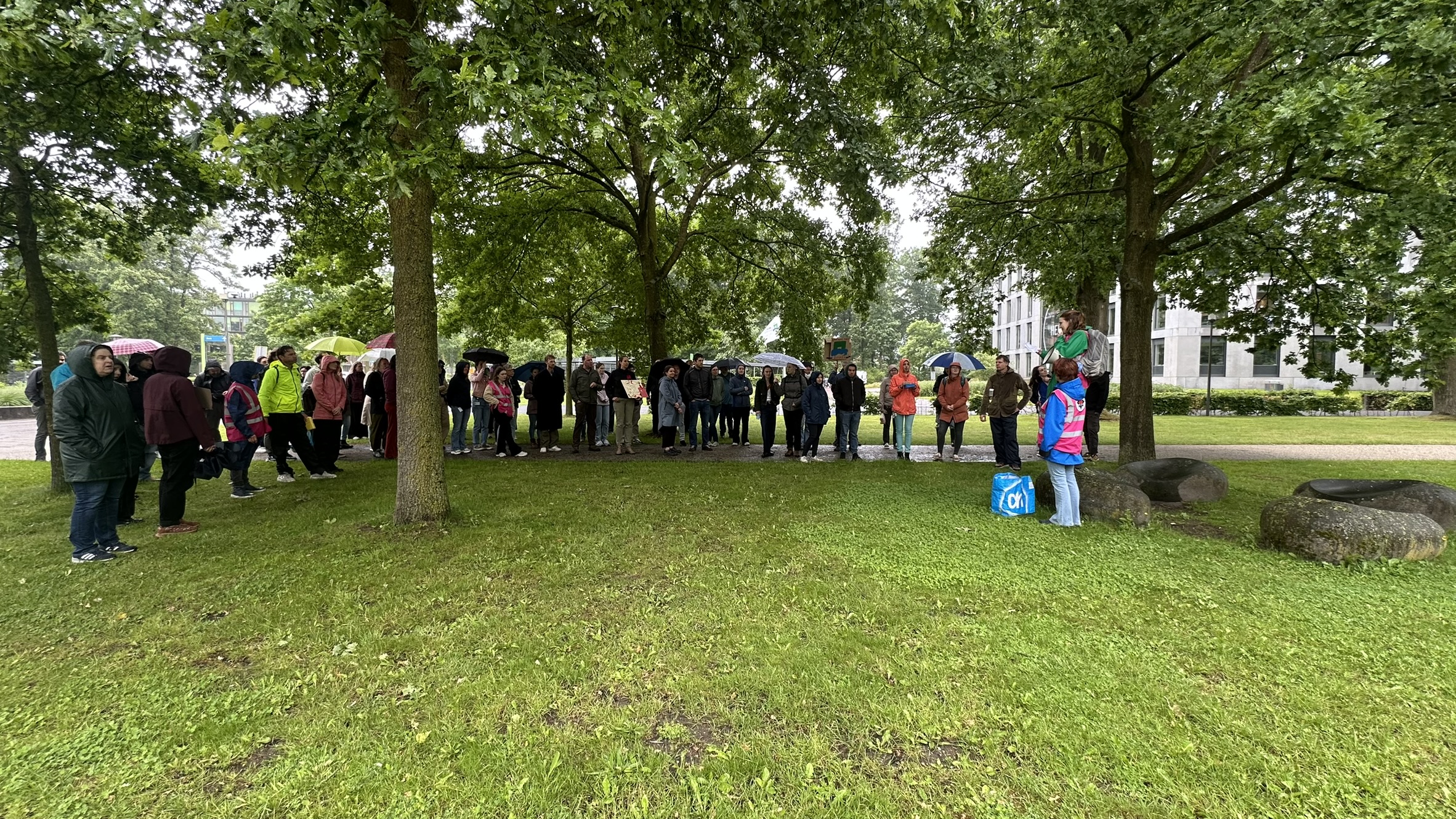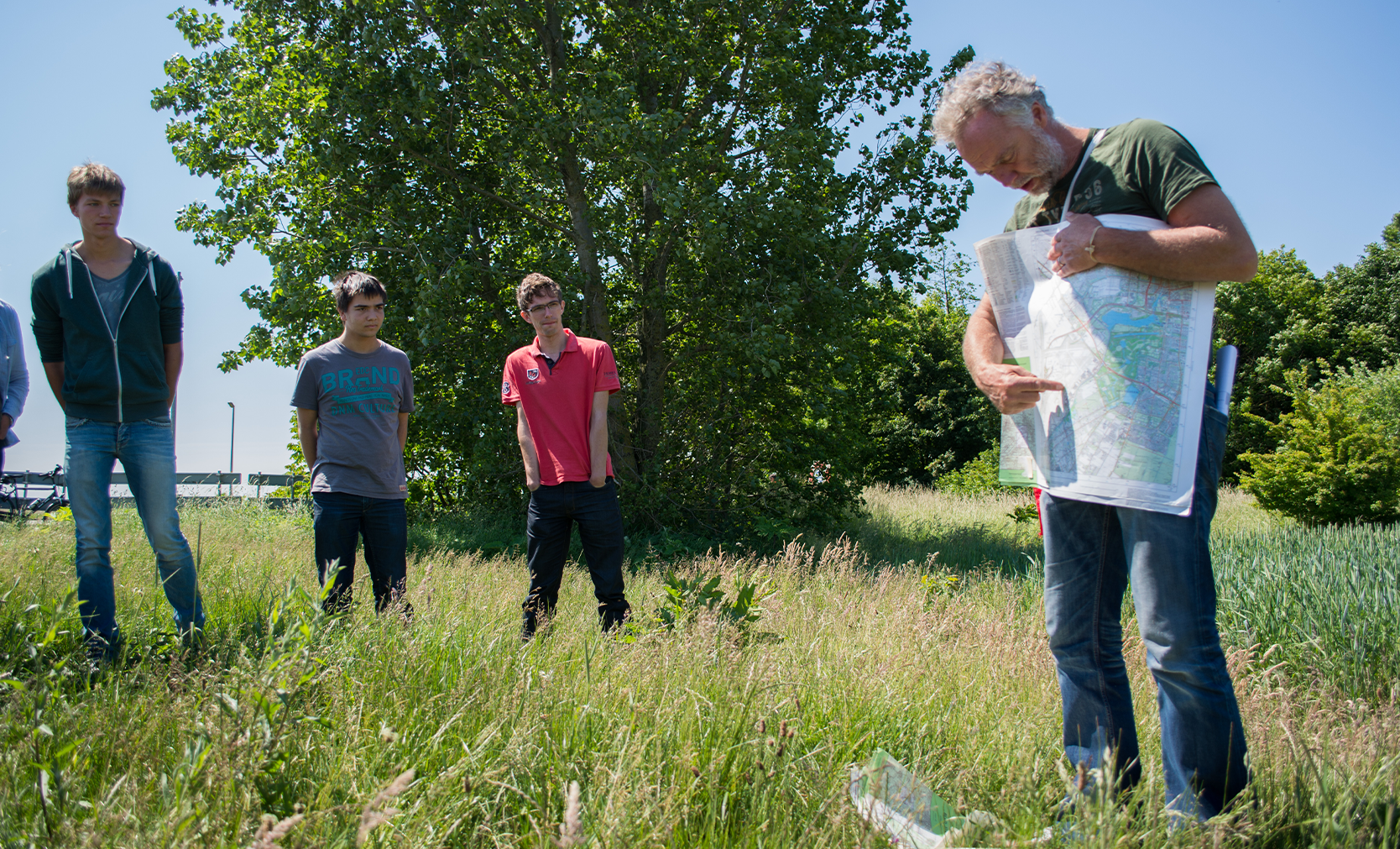The University Guide has ranked Wageningen as the top Dutch university for 20 years in a row. But how do you stay the best in times of increasing competition and falling student numbers? An internal working group is drafting recommendations on structural changes to the study programmes for the Executive Board. ‘If school leavers see 21 different degrees on our website, they no longer see the wood for the trees.’
‘We currently have 20 Bachelor degrees; 21 as of September with Data Sciences as well,’ says Joost de Laat, the general director of the Social Sciences Group. He heads the internal Portfolio Analysis working group, which reviewed the range of BSc degrees on offer. ‘Many of these degree programmes have been around for a long time and are highly valued. But the world is changing; other universities are now also offering degrees in our domain and student numbers are falling. We want to make sure we act before it’s too late. Our working group is looking at how to keep our degree portfolio in robust health, both in terms of the content and in terms of the appeal to students.’
How are you tackling this?
‘In 2023, the education consultancy NIDAP carried out a quantitative analysis of our degree programmes: intake, market share, demographic trends, the appeal to students, competitiveness and so on. That analysis gave a good impression of the status of the various degrees and also included recommendations for the future of each programme. In the past few months, our working group has aimed to get a good qualitative picture too by talking to a wide range of people within WUR and beyond, such as programme directors, teachers, students and people involved in student recruitment.’
What were your findings?
‘For example that it’s difficult to implement major changes in a degree programme. We innovate a lot within modules but it’s harder to make changes to the overall curriculum — for instance replacing a large module with a new course. That’s because of how the education is financed: the programme organizers buy education services from the chair groups. Let’s say they decide to stop a course given by chair group A and replace it with a new course given by chair group B. Group A then ends up with financial problems. So we stick cautiously to the status quo, even if that inhibits innovation.’
‘Another finding was that WUR’s mission — to explore the potential of nature to improve the quality of life — is seen as important in the degree programmes, but it’s often not clear what the mission means in practice for the programme. Our vision of educating responsible change-makers can also mean something different in each programme. We need to make that explicit for each degree programme so that the organizers can show clearly how they apply the WUR mission, and so prospective students know that if they do that degree, they will be trained for those jobs.’
Do we have too many degrees?
‘We offer a remarkable number of degrees, given how many students we have. The average annual intake per Bachelor’s degree nationwide is 140 students, compared with 65 here. Some programmes are larger but many are smaller. What’s more, we expect to see declining numbers for most degrees. So we need to do something about that.’
‘Name recognition is another issue, a recent image monitor has shown. Many secondary school pupils don’t really know what Wageningen is about. If they’ve heard of us at all, they associate us mainly with agriculture. And when those school leavers see 21 different degrees on our website, they no longer see the wood for the trees. The range of degrees on offer needs to be more manageable.’
We want to make sure we act before it’s too late
How could that be achieved?
‘One of the ideas is to divide our degree programmes into three clusters. For example, you could have ‘Fundamentals of Life’ with degrees like Biology, Plant Sciences and Animal Sciences. Then an ‘Innovation & Design for the Potential of Nature’ cluster with Agrotechnology, Biotechnology, Food Technology and Biosystems Engineering. And finally a cluster ‘Bridging Nature & Human Wellbeing’, with degrees such as Health & Society and Economics & Policy. These are provisional names. In the end you should use labels students can relate to. The clusters can help create a clear WUR profile so that students get a better idea of what they can study at Wageningen. It could also make collaboration between degree programmes easier.’
Do you also want to reduce the number of degree programmes?
‘Yes, that is one of our suggestions. Fewer options — for example, 12 to 16 degrees — would make it all clearer. That doesn’t need to be at the expense of study options: some degree programmes could be merged to form a broader programme with specialist modules. The first year would be broad, after which you would choose a specialization.’
What would fewer degrees mean for the teachers? Will jobs be lost?
‘I don’t know. We want to keep the small-scale nature of the teaching. That’s one of WUR’s strengths and an explicit objective in the educational vision. However, we want to make the education more efficient and more flexible. We also hope that offering fewer degrees with a clearer profile will let us continue to attract enough students in the future.’
What is the next step?
‘We’ve been asking people what they think of our findings. The reactions are overwhelmingly positive, although some people do have concerns. Now we are drafting a set of recommendations for the Executive Board: what specific assignment should the board give the programme organizers?’
Will that also suggest which degrees could be merged?
‘Among other things. We are looking at which degrees have a lot of overlap but don’t yet have a shared mission. We are also considering the viability of the degrees with relatively few students if they remain independent, against including them as a specialization within a broader programme. And more generally, what those broader programmes should look like.’
That is undoubtedly a sensitive issue.
‘Absolutely. Change can be frightening, but everyone wants robust, future-proof degree programmes. WUR staff realize the small degrees can’t stay that way. There is a lot of animus for an update, but we need to take action. Doing nothing is not an option.’
When will this happen?
‘If the Executive Board approves the plans this summer, we will need to work out the details together from next year. The changes will gradually alter the portfolio of Bachelor’s degrees over the next few years.’

 Illustration Shutterstock
Illustration Shutterstock 

